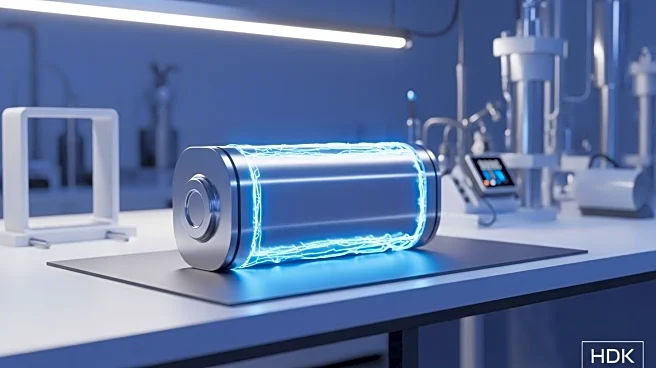What's Happening?
E3 Lithium, a Canadian company, has obtained crucial regulatory permit approvals from the Alberta Energy Regulator (AER) for the second phase of its Clearwater Project Demonstration Facility. This phase will involve drilling a production and injection well to assess the Leduc Aquifer's reservoir characteristics and flow rates. The findings will guide the design of the commercial well scheme, gathering system, and treatment equipment for E3 Lithium's commercial facility. The wells will be integrated with the existing 30-column direct lithium extraction (DLE) system and purification units from phase one, creating a complete brine-to-battery-grade lithium carbonate process system. The company plans to commence its drilling program in early to mid-October, following the completion of phase one commissioning. E3 Lithium has also secured several authorizations from the AER, including approval for a mineral scheme under Directive 065 and for mineral wells and a mineral facility under Directive 056.
Why It's Important?
The advancement of E3 Lithium's Clearwater Project is significant for the lithium industry, particularly in North America, where there is a growing demand for battery-grade lithium carbonate. This development could enhance the supply chain for electric vehicle batteries and other lithium-dependent technologies, potentially reducing reliance on international sources. The successful implementation of this project could position E3 Lithium as a key player in the lithium market, contributing to the broader energy transition towards renewable resources. The regulatory approvals also highlight the evolving landscape of mineral resource management in Alberta, setting a precedent for future projects under the Brine-Hosted Mineral resources regulations.
What's Next?
E3 Lithium is preparing to launch its drilling program in October, which will be a critical step in the demonstration of its technology. The company is also finalizing the Directive 056 application for its commercial facility, which will be submitted alongside an application under the Environmental Protection and Enhancement Act. These steps are essential for the transition from demonstration to commercial production, potentially leading to increased lithium output and further technological advancements in the extraction process.











